Babelfish Bookclub Monthly meets at Planterie, Panchsheel Park, New Delhi.
| Photo Credit: Shivani Kaul
At the launch of author Saharu Nusaiba Kannanari’s latest novel Chronicle of a Hour and a Half at The Bookshop Inc. in Lodhi Market, it became apparent how new the setting was for me. Despite a long-standing love for book talks, I rarely visited bookshops. The marriage of these two experiences that day reminded me of times I have attended similar gatherings in the past, often leaving with a book. This raised two questions in my mind as I wanted to understand — Why do people still flock to bookshops, despite cheaper online options? And is everyone who visits a bookshop a reader?
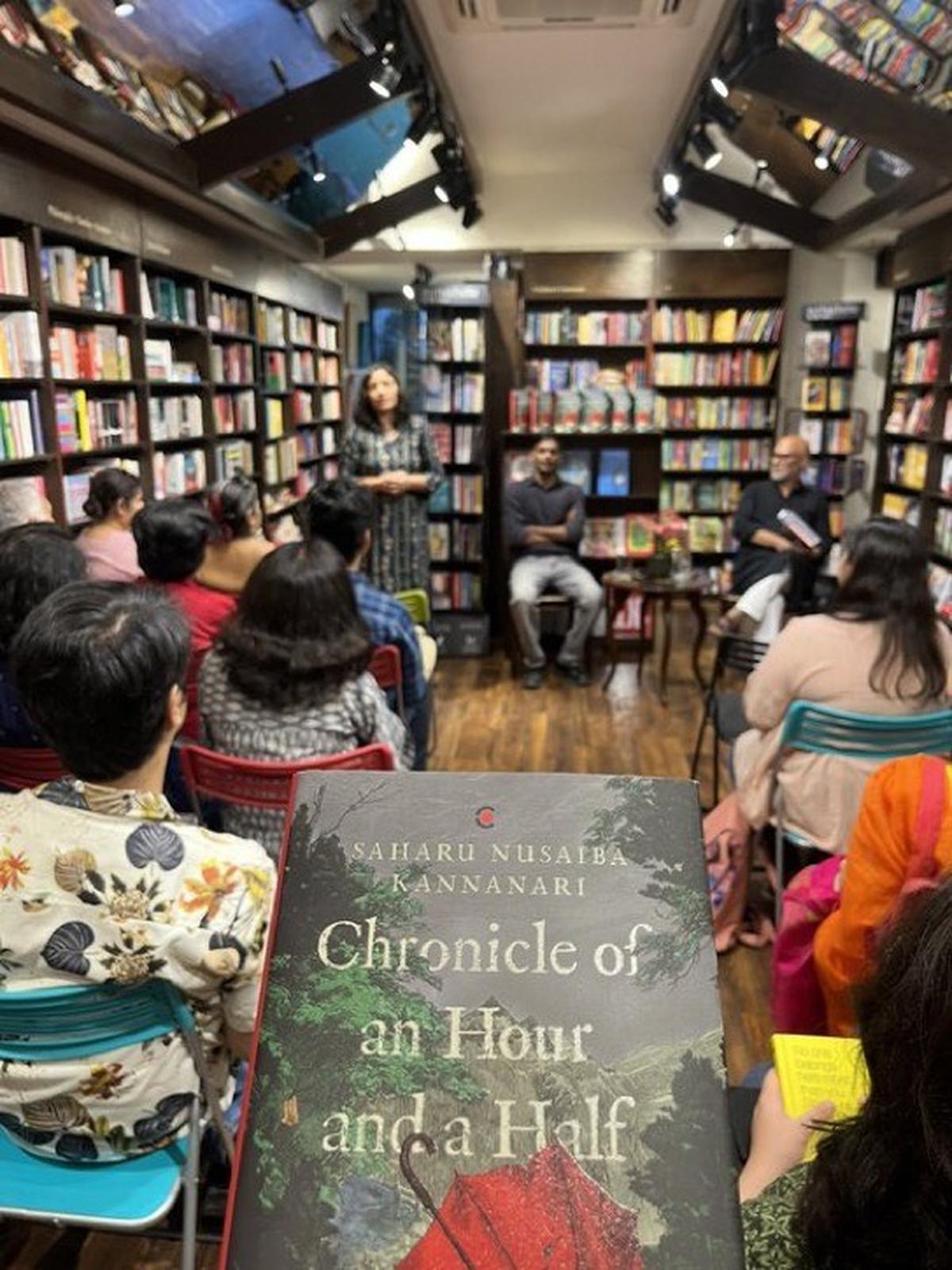
The launch of author Saharu Nusaiba Kannanari’s latest novel Chronicle of a Hour and a Half at The Bookshop Inc. in Lodhi Market
| Photo Credit:
Shivani Kaul
A bespectacled man, holding a big bunch of books, was coming out of Bahrisons in Khan Market when I asked him why he prefers buying from a bookshop when he can get cheaper deals online. “It’s hard to get Indian vernacular books online, he gravely answered, adding, “Even if they are available, the prices are sometimes unreasonable. I always prefer to buy a Bengali or a Hindi book from stores. Bookshops, sometimes, sell politically sensitive content that might not be available everywhere. Then, there is the curation: Independent bookshops are among the few places where people can still find titles missing from libraries and no longer carried by major chains.”
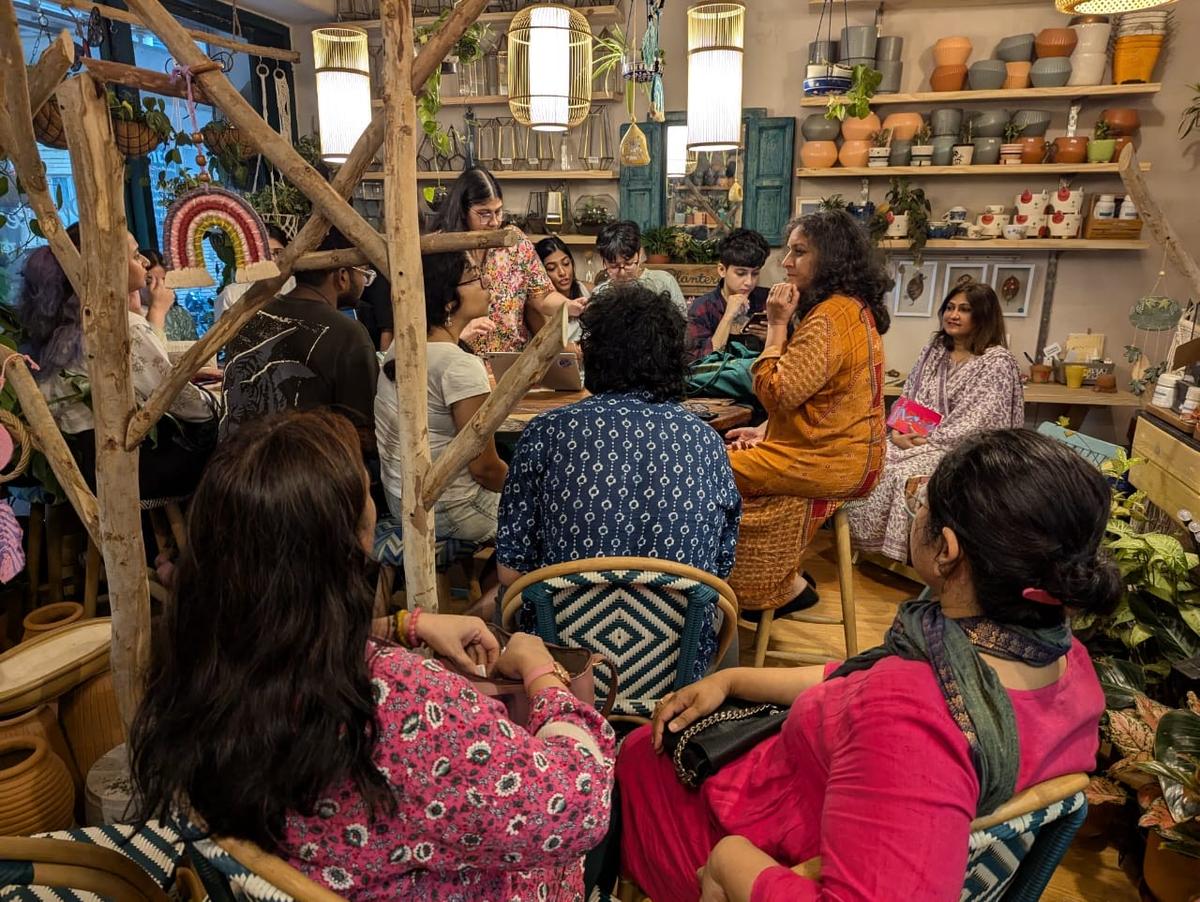
Babelfish Bookclub Monthly meets at Planterie, Panchsheel Park, New Delhi.
| Photo Credit:
Shivani Kaul
Bookshops in Delhi are coming up with smart marketing initiatives to draw readers. For instance, requiring a registration fee for events, which can be redeemed against the purchase of a book, ensures attendance while encouraging immediate book sales.
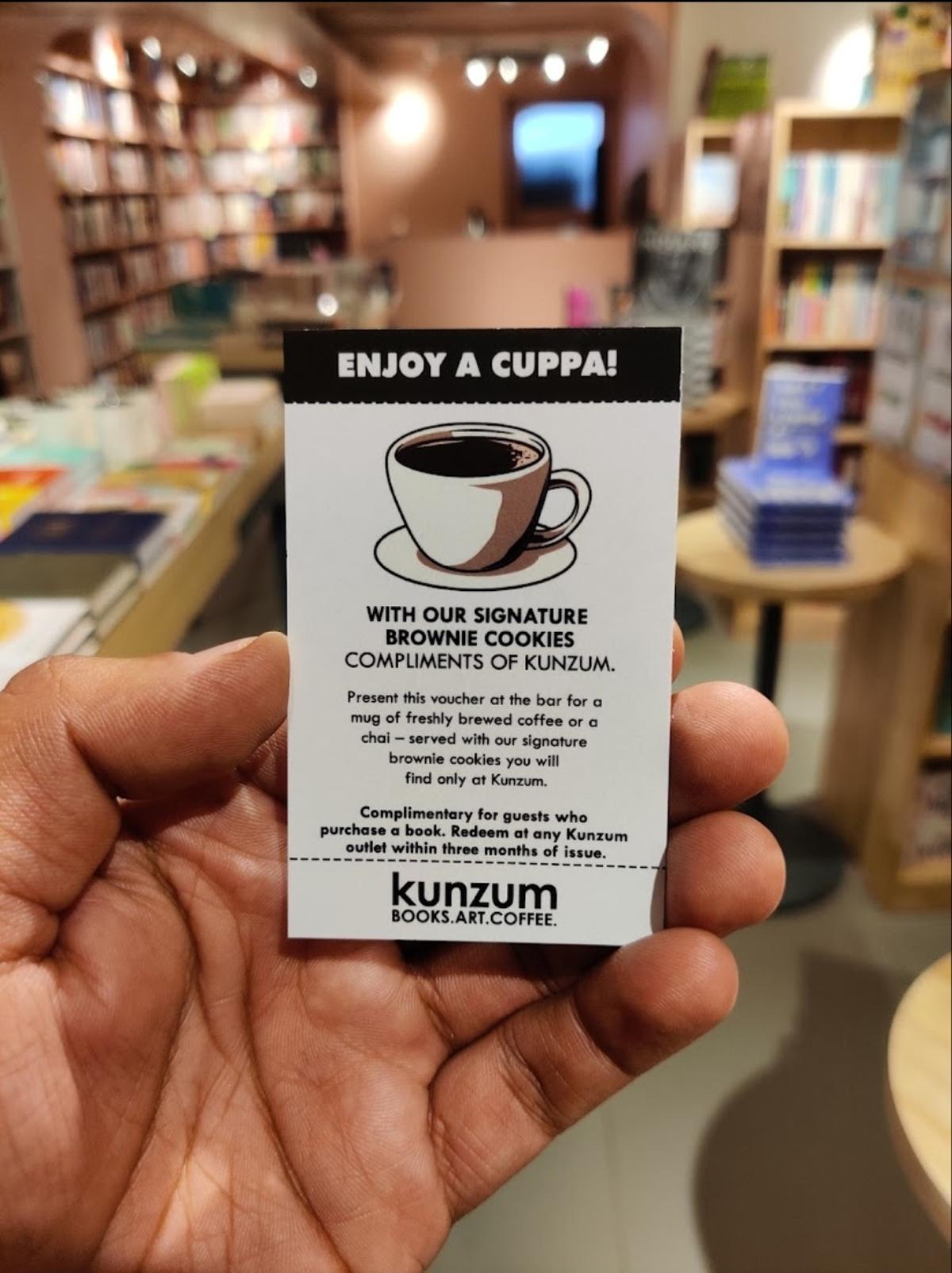
Coffee coupon after a purchase of book in Kunzum Travel Café, New Delhi.
| Photo Credit:
Special Arrangement
I sought out Ajay Jain, founder of travel café and bookshop Kunzum, who shared some insights — “Globally, electronic and audio books continue to make more news than sales. Collating reports from various sources, we have estimated that over 85 percent of books read in a tech-centric society like the USA are printed on paper. The figure goes up to 95 percent in Europe and over 98 percent in India. In other words, sales of print books are not affected much by digital ones but by forces outside of the books trade.”
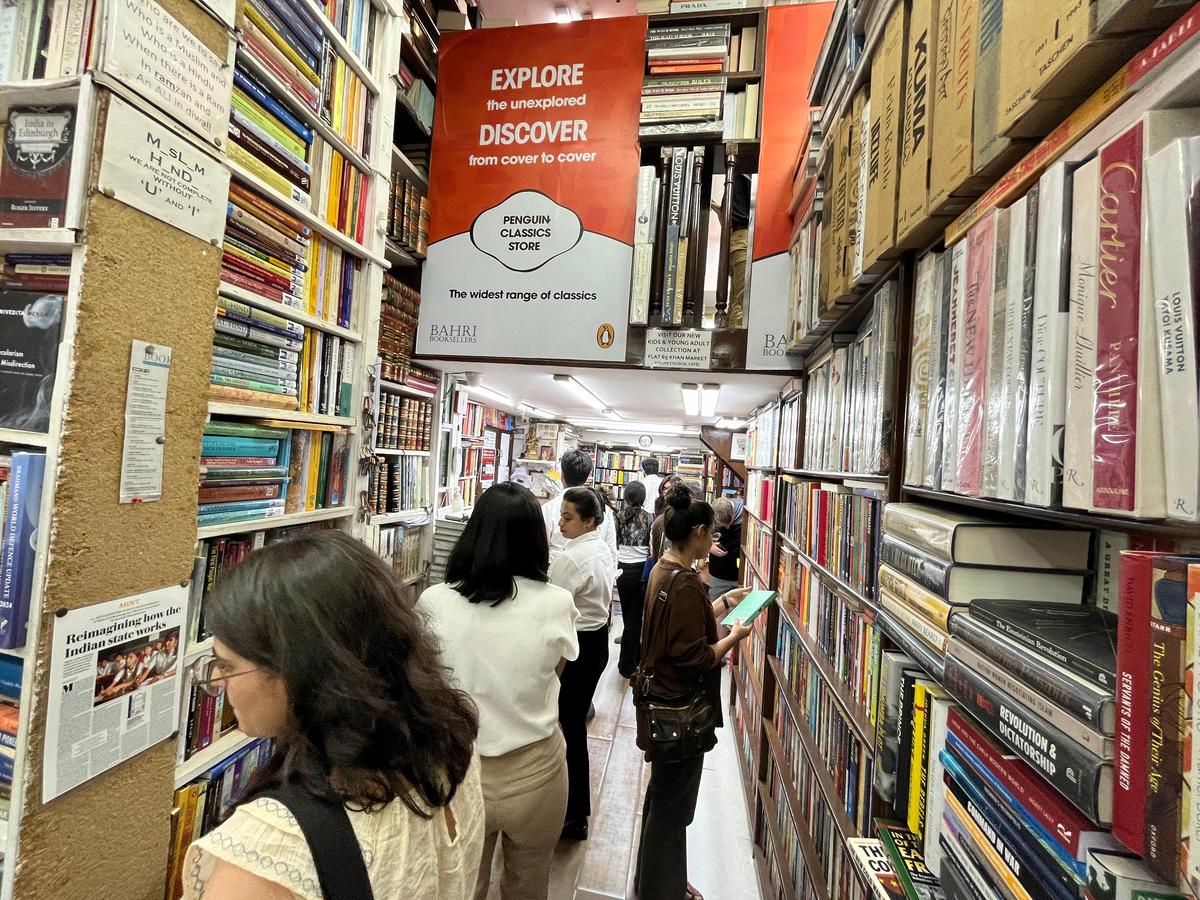
Inside Bahrisons, Khan Market, New Delhi.
| Photo Credit:
Omar Azhar
According to Ajay, this also emerges from a point of symbiosis: “We sell a significant quantity of books by local/independent authors. It could be because Kunzum offers them space to hold their book launches, and we thus stock them also. The authors in turn promote Kunzum amongst their followers as the place to meet them and also to pick their books.” He adds, “With online such a strong force, brick-and-mortar retail has to have a strong differentiator to stay competitive. Our customers like our ambience — the way we have designed the displays, seating, lighting, overall mood and vibe. Curation is vital to what we do — the displays aid discovery. Then there are add-ons: coffee/tea on the house when you make a purchase, free pre-loved books (when you buy four new books), events etc.”
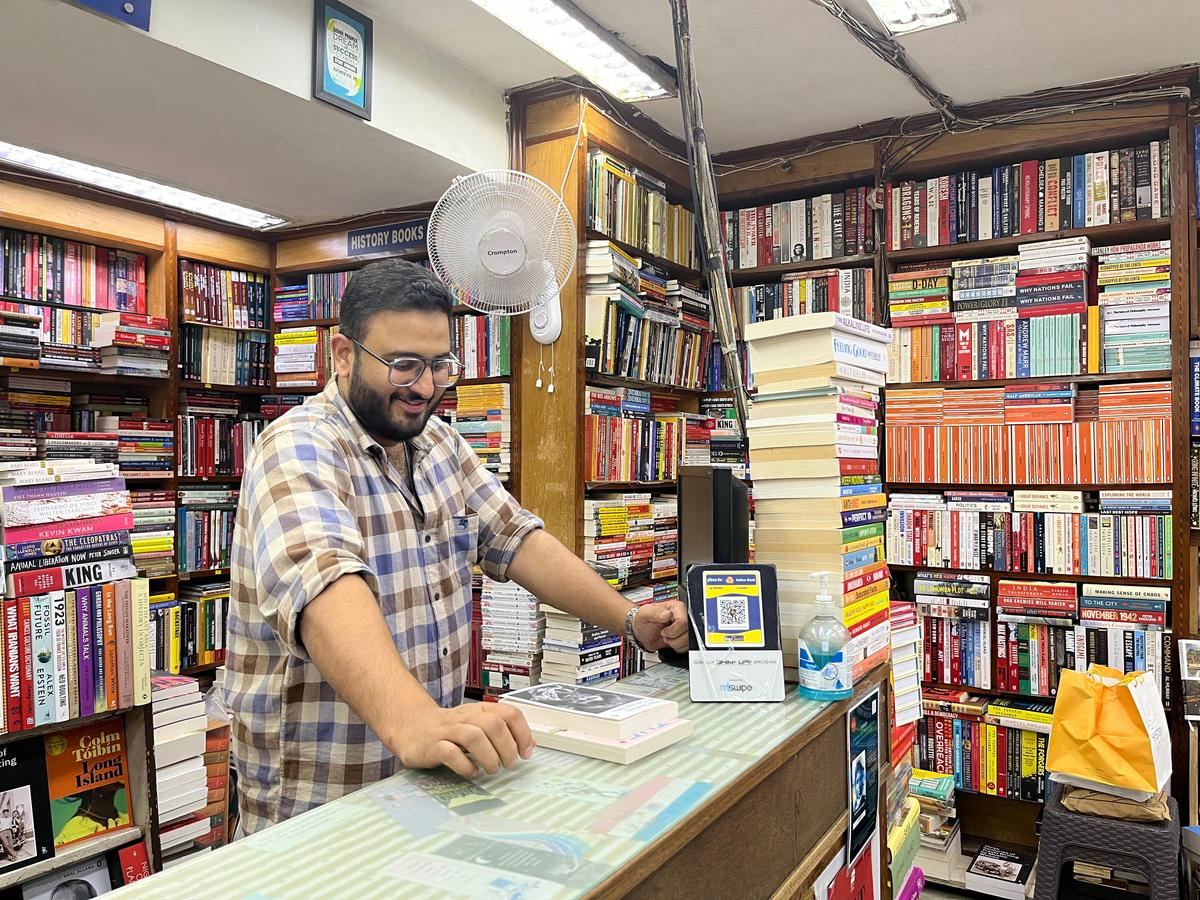
Mirza Usman Beg from Midland Bookshop in South Extension- I, New Delhi.
| Photo Credit:
Omar Azhar
For the average person, a trip to bookshop is about more than just acquiring new reading material. Sometimes, they are there only to be seen in one. Cosy settings like an in-store cat is sometimes enough to draw patrons back repeatedly. Some bookshops have also become community-gathering places where people try to come to terms with changes in the country and reflect on injustice around the world. They’re increasingly seen as part of a “soft resistance”.
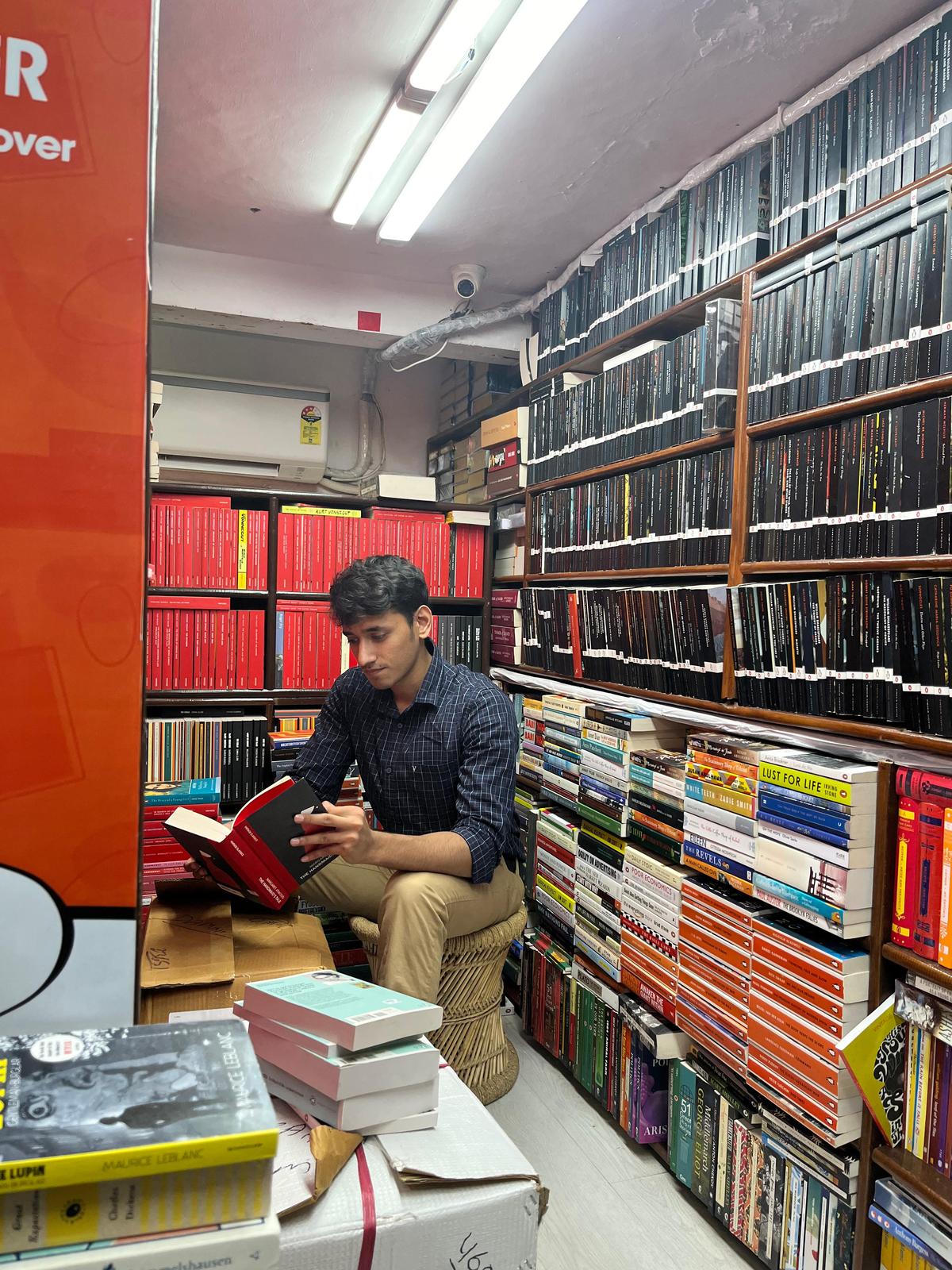
A reading nook in Bahrisons, Khan Market.
| Photo Credit:
Omar Azhar
Usman, who manages the South Extension branch of his family-run Midland Bookshop, emphasises that bookshops enhance the appeal and dynamism of reading. Book clubs, when affiliated with the stores, play a crucial role in engaging readers, boosting sales, and preserving the joy of reading. In Midland’s case, the Babelfish Book Club, expertly curated by Avdyushka Gupta and Shivani Kaul marketing executive) from Westland Books, hosts monthly meetings focused on translated fiction, in collaboration with the bookshop.
In the age of e-books and online shopping, bookshops have adapted by offering digital integration, such as online book clubs and virtual author events. This hybrid approach ensures that bookshops remain relevant and accessible, catering to both traditional and modern preferences.